The Preventable Disaster
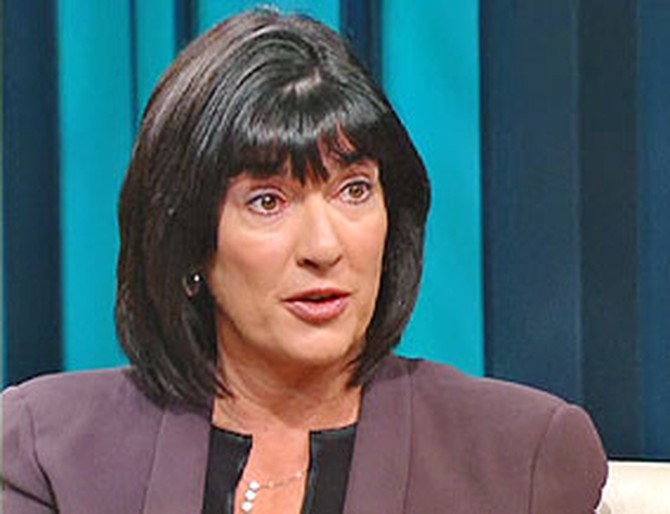
The trafficking of children for the purposes of prostitution has been called the ugliest, most preventable man-made disaster in the world. One brave person who has seen the realities of this desperate, depraved underworld up close is CNN international reporter Christiane Amanpour.
Christiane says she has witnessed instances in which parents or guardians sell girls—some as young as 10 years old—into prostitution. Sometimes they do so with the full knowledge of what is to come. At other times the parents or guardians are unaware, believing that the girls will simply be working in some other way to support their families.
According to World Vision, an international children's watch group, a quarter of all who travel internationally so that they may solicit sex from children are U.S. citizens. "As awful as it sounds, that is true," Christiane says. "Of course it's not just American citizens. It's Europeans and, in many parts of the world, it's the local people. Europeans [travel] a lot to Asia and Southeast Asia for that kind of sex service, but the majority, the bulk, is the local community."
Christiane says she has witnessed instances in which parents or guardians sell girls—some as young as 10 years old—into prostitution. Sometimes they do so with the full knowledge of what is to come. At other times the parents or guardians are unaware, believing that the girls will simply be working in some other way to support their families.
According to World Vision, an international children's watch group, a quarter of all who travel internationally so that they may solicit sex from children are U.S. citizens. "As awful as it sounds, that is true," Christiane says. "Of course it's not just American citizens. It's Europeans and, in many parts of the world, it's the local people. Europeans [travel] a lot to Asia and Southeast Asia for that kind of sex service, but the majority, the bulk, is the local community."
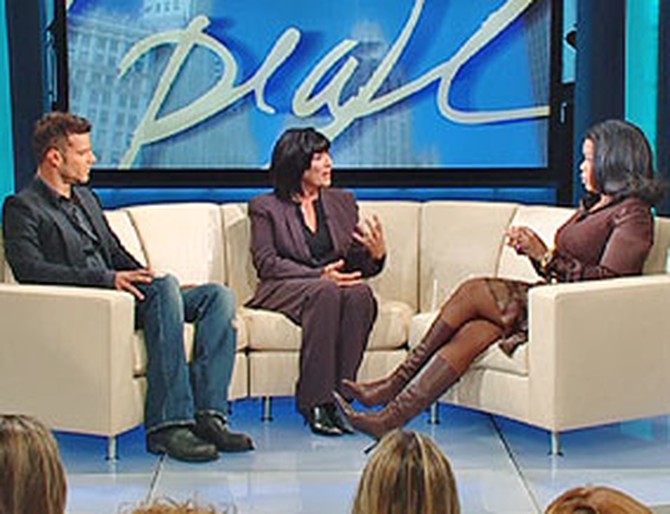
International experts who want to eradicate this disgusting practice face a huge problem. Sex slave traders are highly developed organized criminals who are adept at avoiding laws designed to stop them.
It's not enough that most of the countries with this problem outlaw prostitution by law. "The problem is the law enforcement is not strict enough," Christiane says. "Many times police, local judges, officials can get bought off. It's very much like a Mafia organization where, with enough money, you can bribe a local official. One of the things that those who advocate prevention and some way to deal with this want is to toughen up law enforcement and make this a shameful crime."
It's not enough that most of the countries with this problem outlaw prostitution by law. "The problem is the law enforcement is not strict enough," Christiane says. "Many times police, local judges, officials can get bought off. It's very much like a Mafia organization where, with enough money, you can bribe a local official. One of the things that those who advocate prevention and some way to deal with this want is to toughen up law enforcement and make this a shameful crime."
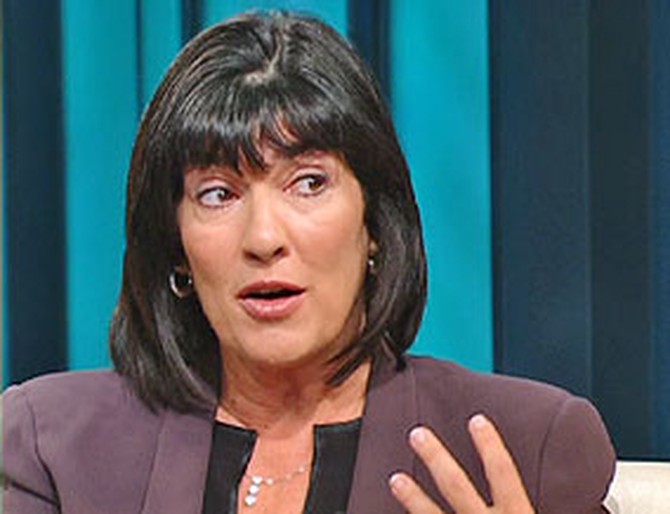
With this problem so entrenched, how do we begin to fight it?
"First of all, I think the media has a huge role to play," Christiane says. "I think those programs that have been aired and that have won some awards, they make a huge difference in raising public awareness."
"I think that we have to be aware, in our communities, of what's going on," she continues. "Neighborhoods shouldn't be afraid—if they see something untoward, if they hear that something untoward is going on—to report it even if it turns out to be nothing. It's better to be safe than sorry. We need to lobby for more shelters for these victims. We need to lobby internationally for much more strict and tough law enforcement."
"First of all, I think the media has a huge role to play," Christiane says. "I think those programs that have been aired and that have won some awards, they make a huge difference in raising public awareness."
"I think that we have to be aware, in our communities, of what's going on," she continues. "Neighborhoods shouldn't be afraid—if they see something untoward, if they hear that something untoward is going on—to report it even if it turns out to be nothing. It's better to be safe than sorry. We need to lobby for more shelters for these victims. We need to lobby internationally for much more strict and tough law enforcement."
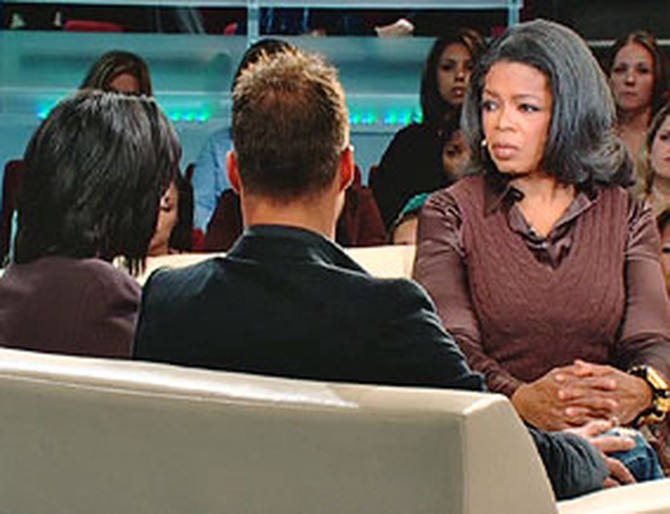
In addition to the tremendously difficult task of ending child sex trafficking in other countries, another major obstacle is reaching out to help the girls who have already fallen prey to this underworld.
The issue is cloaked in a "conspiracy of silence" due to the shame these girls and their families feel, Christiane says.
In order for these children to have hope, they need to believe that they have a chance at a better life. The few children who are rescued often have mixed emotions.
Christiane says that everything is working against these girls when they try to rebuild their lives. "In many instances they're too afraid [to return]," she explains. "Cultures in many parts of the world simply exclude and shun women who have been raped or who, what they consider, brought shame on the family. But equally there are many families who just want their kids back. There's not enough psychological counseling for many of these kids, not enough awareness."
The issue is cloaked in a "conspiracy of silence" due to the shame these girls and their families feel, Christiane says.
In order for these children to have hope, they need to believe that they have a chance at a better life. The few children who are rescued often have mixed emotions.
Christiane says that everything is working against these girls when they try to rebuild their lives. "In many instances they're too afraid [to return]," she explains. "Cultures in many parts of the world simply exclude and shun women who have been raped or who, what they consider, brought shame on the family. But equally there are many families who just want their kids back. There's not enough psychological counseling for many of these kids, not enough awareness."
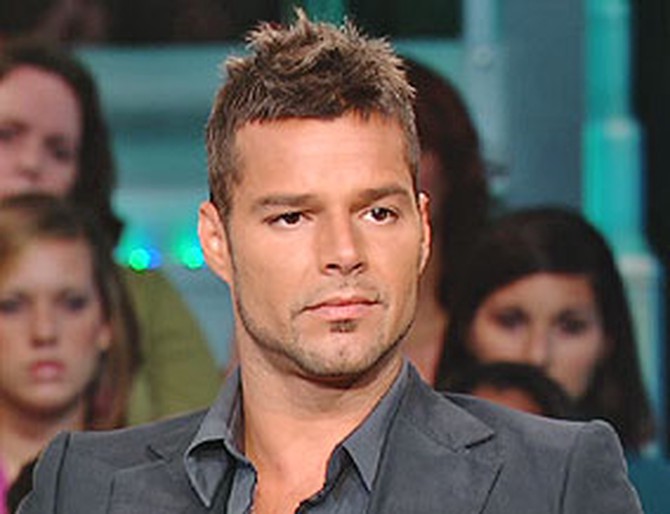
After rising to the top of the music charts, Ricky Martin put his "vida loca" on hold. Along with his recent comeback into the entertainment world , Ricky has been devoting himself to fighting for the rights of children worldwide, especially against exploitation, trafficking and prostitution.
In early 2005, his concern brought Ricky to the aid of tsunami orphans. He says he became involved in fighting child exploitation after working in an Indian orphanage. "I had the opportunity to meet with victims of child trafficking," he says. "I rescued three girls from the streets that were literally living in a plastic bag. They were two days away from being trafficked."
"I started educating myself about this issue and then I realized how intense it is," he says. "We're talking about raping children. … The governments need to do something. We need to change laws."
In early 2005, his concern brought Ricky to the aid of tsunami orphans. He says he became involved in fighting child exploitation after working in an Indian orphanage. "I had the opportunity to meet with victims of child trafficking," he says. "I rescued three girls from the streets that were literally living in a plastic bag. They were two days away from being trafficked."
"I started educating myself about this issue and then I realized how intense it is," he says. "We're talking about raping children. … The governments need to do something. We need to change laws."
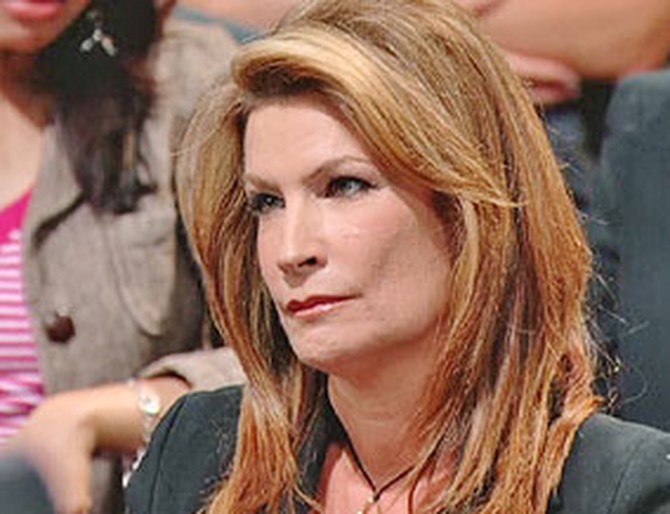
Michele Gillen, a reporter for WFOR, a television station in Miami, went undercover to investigate child smuggling. She started in Tijuana, Mexico, on a street called The Gates of Hell. However, her search led her across the border to a middle class community in California.
There, police discovered an outdoor brothel in the woods. In claustrophobic makeshift bedrooms made out of bamboo reeds, young girls were forced to have sex on dirt floors with as many as 40 men a day.
"This is a monstrous problem happening on U.S. soil," Michele says. "There were some days that the traffickers brought in groups of girls as young as 11 and 12."
There, police discovered an outdoor brothel in the woods. In claustrophobic makeshift bedrooms made out of bamboo reeds, young girls were forced to have sex on dirt floors with as many as 40 men a day.
"This is a monstrous problem happening on U.S. soil," Michele says. "There were some days that the traffickers brought in groups of girls as young as 11 and 12."
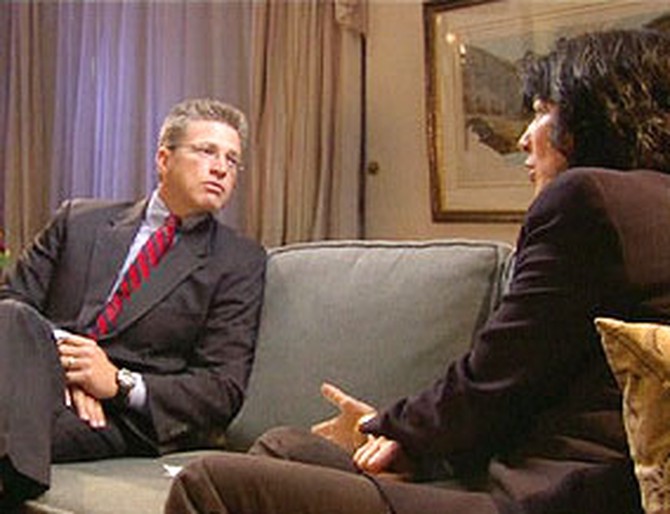
Gary Haugen, President of the International Justice Mission, says that the worst areas in the world for child sex trafficking are South Asia, with an estimated 2.5 million forced prostitutes, and Southeast Asia, home to a booming sex tourism industry.
However, he adds that this "industry of rape for profit" is not only found oceans away, it might be right under your nose.
"One group was able to identify 12 brothels within a mile radius of the White House," he says. "They're right in our neighborhoods, in our cities. Sometimes they're hard to find, but they're part of our community."
For more information about the International Justice Mission, visit www.ijm.org.
However, he adds that this "industry of rape for profit" is not only found oceans away, it might be right under your nose.
"One group was able to identify 12 brothels within a mile radius of the White House," he says. "They're right in our neighborhoods, in our cities. Sometimes they're hard to find, but they're part of our community."
For more information about the International Justice Mission, visit www.ijm.org.
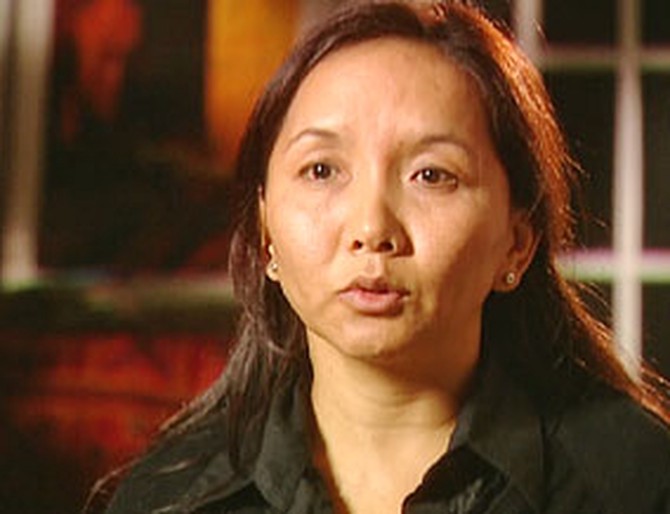
Kim was a Tibetan refugee living in southern India when Mack Mitchell, a minister who had befriended her sister, came to visit her family. The minister offered to take Kim to America and enroll her in school. "He promised my parents he'd keep me safe and treat me like his own daughters," she says.
Just a week after she arrived in America to live at the minister's house, Kim says, he started sexually abusing and torturing her. This continued for six years. "When I started to realize what was happening to me, I asked him to stop. I was crying and begging him," Kim says. "He told me that if I told anyone, I would go to prison. Later, he started to tell me that my family in India would go to prison, that no one would ever believe me, and no one would ever marry me. … My life was hell in this place here, night after night."
Just a week after she arrived in America to live at the minister's house, Kim says, he started sexually abusing and torturing her. This continued for six years. "When I started to realize what was happening to me, I asked him to stop. I was crying and begging him," Kim says. "He told me that if I told anyone, I would go to prison. Later, he started to tell me that my family in India would go to prison, that no one would ever believe me, and no one would ever marry me. … My life was hell in this place here, night after night."
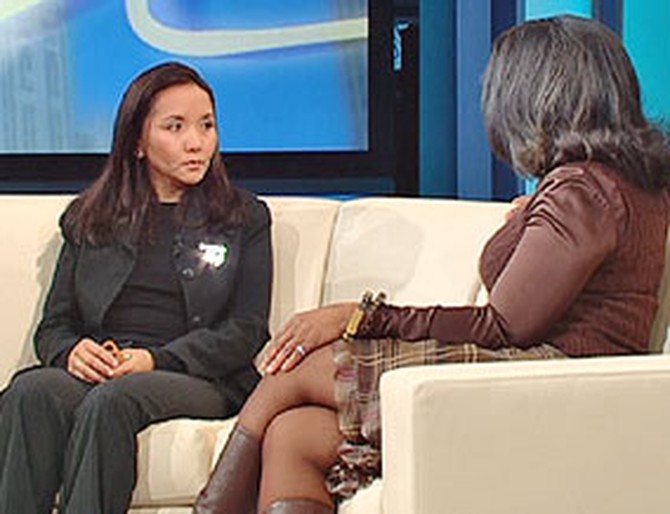
Later, when Mitchell arranged for two of Kim's cousins to live at his house, members of the church congregation grew suspicious. They approached Kim and asked her what was going on in the minister's home. She responded by telling everything to police.
"I came out with this story because I realized that he was going to, or already has, inflicted a lot of pain on my cousins," Kim says. "I knew if I waited too long, they would suffer a lot more. I went to the police to save them from the suffering."
During their investigation, police found photos of young girls from other countries. He traveled frequently to such places as Ecuador, Thailand and the Philippines, Kim says.
With Kim's testimony against him, Mitchell was convicted of rape, indecent assault and battery. He served just over three years in prison, his passport was taken away for 10 years, and he was banished from his church.
Kim does not think this was enough punishment for the six years of torture and sexual abuse. "I think nothing could be enough for what he has done to me and maybe other hundreds of victims out there that we don't even know."
The lesson from this, Kim says, is to recognize that child sex trafficking is not just happening someplace else. It is happening right here.
"Traffickers don't come in one uniform profile," she says. "They come in many shapes and forms. As you see, this man was respected so much in the community. And I hope that people will wake up not only in other parts of the world, but right here in the United States."
Determined not to be seen as a victim, Kim uses her experiences to help end human trafficking. She speaks at international conferences and works to educate youth about human trafficking issues in schools around Boston.
"I came out with this story because I realized that he was going to, or already has, inflicted a lot of pain on my cousins," Kim says. "I knew if I waited too long, they would suffer a lot more. I went to the police to save them from the suffering."
During their investigation, police found photos of young girls from other countries. He traveled frequently to such places as Ecuador, Thailand and the Philippines, Kim says.
With Kim's testimony against him, Mitchell was convicted of rape, indecent assault and battery. He served just over three years in prison, his passport was taken away for 10 years, and he was banished from his church.
Kim does not think this was enough punishment for the six years of torture and sexual abuse. "I think nothing could be enough for what he has done to me and maybe other hundreds of victims out there that we don't even know."
The lesson from this, Kim says, is to recognize that child sex trafficking is not just happening someplace else. It is happening right here.
"Traffickers don't come in one uniform profile," she says. "They come in many shapes and forms. As you see, this man was respected so much in the community. And I hope that people will wake up not only in other parts of the world, but right here in the United States."
Determined not to be seen as a victim, Kim uses her experiences to help end human trafficking. She speaks at international conferences and works to educate youth about human trafficking issues in schools around Boston.
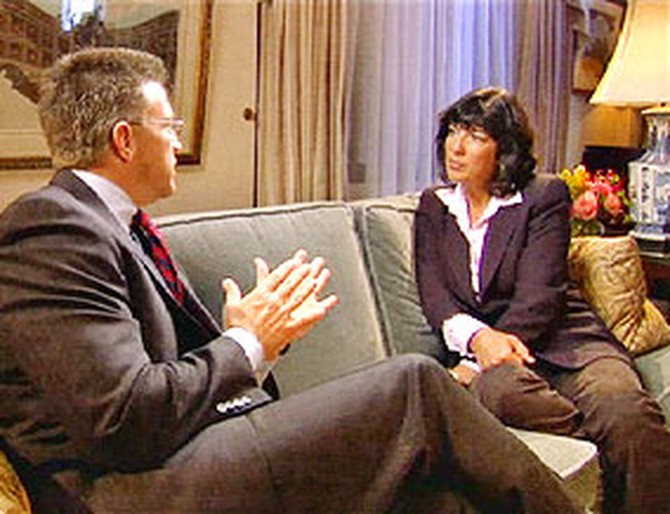
Since the bulk of the worst child sex trafficking occurs in other countries, American citizens may feel like we're powerless to affect change. However, Gary Haugen of the International Justice Mission says, "We're making a start at that, especially in terms of making sure that those countries that aren't even meeting minimum standards at fighting the problem have consequences for their relationship with the United States. What we do need here in the United States is greater resources so that law enforcement can do the work that it needs to do, and where sex trafficking is made a priority—[make it] a high priority."
How can Americans make this problem stop? "Speak out in our community. Support law enforcement in making this a priority. And let's support those local social services, those shelters, those places of safety for immigrants, for girls, and make sure there's a safe place for these victims."
Get the facts on child sex trafficking, and let your voice be heard.
How can Americans make this problem stop? "Speak out in our community. Support law enforcement in making this a priority. And let's support those local social services, those shelters, those places of safety for immigrants, for girls, and make sure there's a safe place for these victims."
Get the facts on child sex trafficking, and let your voice be heard.
Published 11/02/2005

